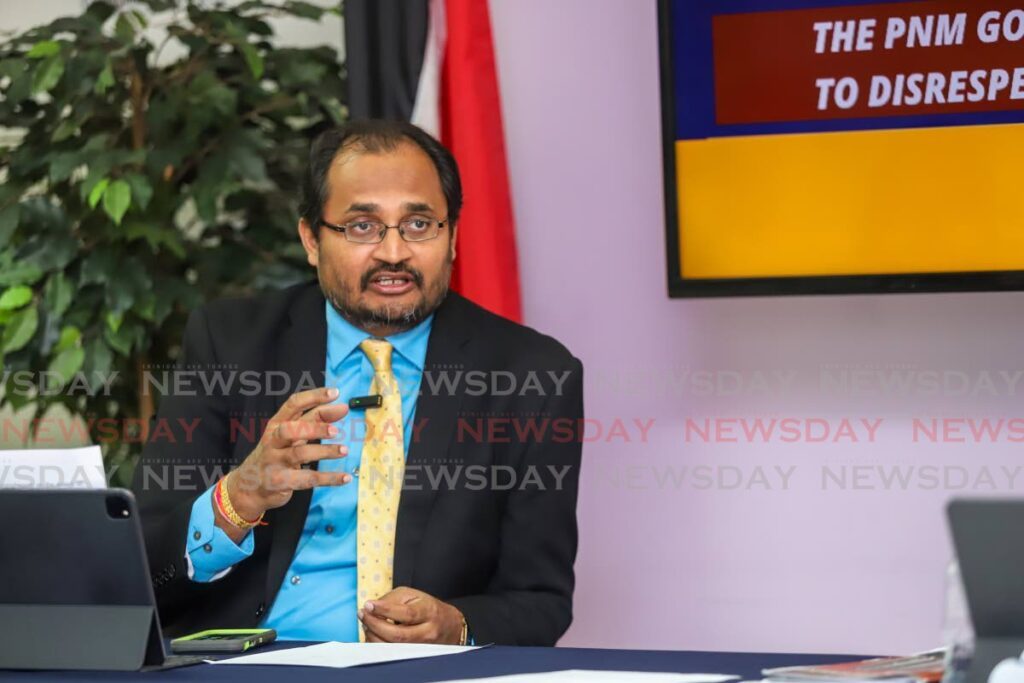The unrealised potential for freedom

DINESH RAMBALLY
EMANCIPATION DAY presents an opportunity for all citizens to reflect on the idea and spirit of freedom. August 1 is a celebration of the liberation of enslaved Africans in the British Empire in 1838, but it is also a celebration of the resilience of the human spirit, which, even in the most terrible circumstances, manages to produce hope and aspirations for brighter days.
It is also worth celebrating that within the global pantheon of African thinkers and thought leaders, Trinidad is special. This small island has produced some of the giants of African liberation, but also intellectual giants in other fields.
I am proud to acknowledge and celebrate people like John Jacob Thomas, the 19th century Trinidadian who wrote The Theory and Practice of Creole Grammar, one of the first studies of Creole languages, and Henry Sylvester Williams, a lawyer and activist, born in Trinidad, who convened the first Pan African Congress in London in 1900.
Closer to our time, I am proud as I recall the 20th century intellectual titans like CLR James, George Padmore, Eric Williams and Lloyd Best. And most of all, I am proud to remember that one of the most significant figures in the American Black Power movement, Kwame Ture (Stokely Carmichael), was born and lived the first decade of his life on our soil.
But even as we celebrate the achievements of people of African origin in this new century as they continue to work toward the large project of freedom, we cannot help but notice many people in the world are losing their freedoms – from Gaza in the Middle East to Georgia in the US, emancipation in many forms is desperately needed now.
And if we turn our eyes away from the international stage and look around us, we see our country flounder and flag under the burdens of economic hardship, crime and corruption, which encroach on our freedom to live peacefully and to simply walk our streets.
We know these troubles are not for lack of resources. We have gifts in abundance from the earth, and from the minds of our people. But as we look out across the society we see very little by way of original ideas, and new ways of managing our lives in this hostile 21st century. The challenge to freedom is no longer breaking physical shackles.
It is the invisible “mind-forged manacles,” as a great poet, William Blake, put it, that seem to be our greatest impediments to progress. And our conundrum is exquisitely stated by another great poet, Bob Marley: “Emancipate yourself from mental slavery; none but ourselves can free our mind.”
Most desperately, we need to free our minds from old, destructive ways of thinking. We find ourselves in need of new ideas about how to live, how to understand our place in the world, and how to exist in harmony with it. And looking at the legacy of emancipation, embodied in those remarkable people, we understand that we are capable of inventing things to solve our problems.
I believe there is enormous possibility in the multifarious nature of freedom. For many people freedom is the freedom from something unpleasant. But it could also be the freedom to venture onto new paths which were closed before, or which we simply had not considered. It is this second freedom which has the most potential for us in TT. This is the freedom to explore, discover, to learn from everything the world has to offer.
This can be done in the school room, living room and university lecture hall. But most urgently, the people of TT have to learn from each other. Just as the stories and ideas of the thinkers and scholars I have mentioned are important to all our people, the gifts of other groups are important.
This is not just the people, though there are plenty of those, like Rudranath Capildeo, Sir Solomon Hochoy, Lennox Joseph Pawan, the Naipauls. I mean the ideas Hindus brought with them in the Ramayana and the Mahabharata. Our European colonisers brought the knowledge of the Enlightenment. Our Chinese and Islamic citizens brought the knowledge of empires we have barely touched.
As we enjoy the spectacle of the day, the parade, the performances at the Emancipation Village, I would urge all Trinidadians/Tobagonians to reflect upon the achievements of this small country, and the gift African Emancipation Day offers to us all – the freedom to be something you have never even thought of, to invent, and to create the ideas that bring us a better life.
Happy Emancipation Day to our African brothers and sisters, and all our people who fight to defend our freedoms in so many ways.
Dinesh Rambally is the MP for Chaguanas West

Comments
"The unrealised potential for freedom"